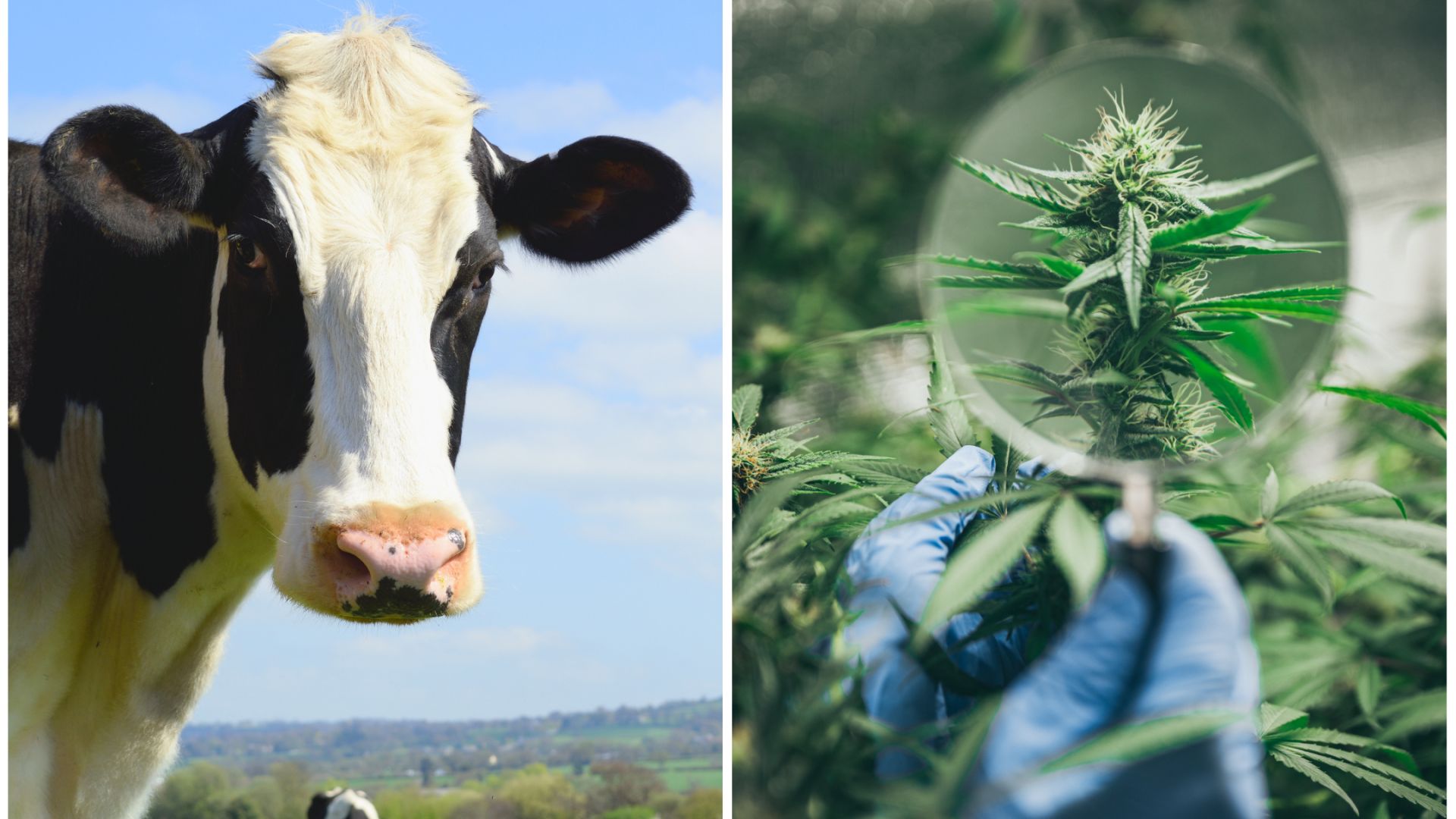Hemp products high in THC can contaminate milk

Cows fed hemp silage high in tetrahydrocannabinol (THC) produced contaminated milk and showed signs of intoxication in a study that has garnered attention for making cows “get high” on hemp. But the study also showed that other forms of hemp silage did not have the same effect, suggesting concentrations of cannabinoids like THC will be critical to determining which hemp products should be approved for use in animal feed. In the study, led by researchers at the German Federal Institute for Risk Assessment, lactating dairy cows initially received a diet in which corn silage was partially replaced by a hemp silage made from the whole hemp plant. The initial silage was intentionally selected to contain lower concentrations of THC in order to provide the cows with an “adaptation” period, according to the researchers.
After this adaptation period, the researchers switched the cows to a diet containing hemp silage comprised exclusively of the leaves, flowers and seeds of the hemp plant. This silage intentionally contained a higher concentration of of THC, the cannabinoid known to be responsible for most of the intoxicating effects associated with cannabis, with the researchers estimating that the cows ingested up to 86 times more THC than would be required to trigger negative health effects in humans. Cows developed symptoms including increased salivation and nasal secretion after they began eating the high-THC diet. The study also observed that feed intake, and therefore milk production, decreased significantly two days after the high-THC silage was administered. These symptoms abated after the high-THC diet was removed, according to the researchers, and did not occur during the initial adaptation period. Researchers also observed that the milk from the cows in the study contained detectable levels of multiple cannabinoids, including THC, during the adaptation period where the cows received the low-THC hemp, and when they were fed the high-THC hemp. The amount of THC that accumulated in the milk exceeded the acute reference dose at which negative health effects may occur in humans. However, the researchers noted that the acute reference dose is a hypothetical limit and that the study did not test whether the milk had any actual effect on humans. The results of the study indicate that “livestock farmers should only feed components of commercial hemp plants that are approved as feed or components of feed,” said the spokesperson for the German Federal Institute for Risk Management.